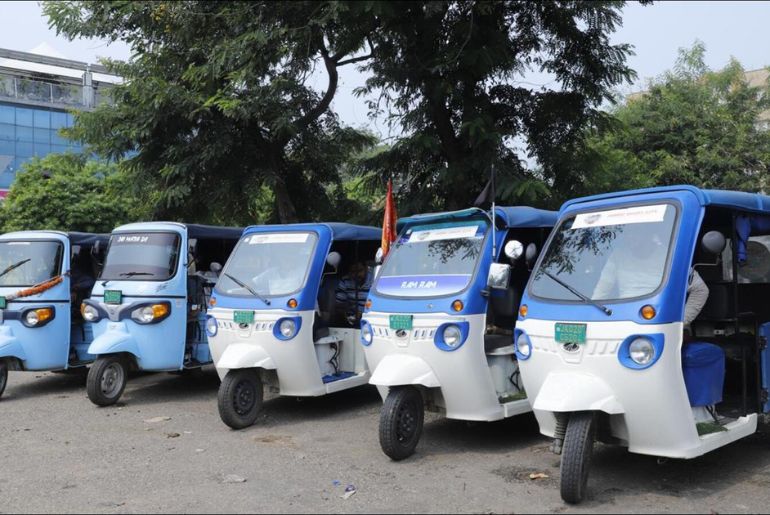The Jammu district administration has rolled out a new zonal regulation system for electric three-wheelers, including e-rickshaws, autos, and carts, aimed at easing traffic congestion and improving road safety. However, the move has triggered strong opposition from both commuters and vehicle operators, who have termed it “impractical” and “anti-people.”
According to a public notice issued by Traffic Police Jammu, all electric three-wheelers must now operate only within their designated colour-coded zones. Each vehicle must display colour-coded identification plates and painted strips on the front and rear, while inter-zonal movement is strictly prohibited. Vehicles found violating the rule or lacking proper coding will face seizure and penalties, said Senior Superintendent of Police (Traffic) Farooq Qaiser.
The new system also bans the movement of e-rickshaws on flyovers, national highways, and state highways within the district, with seven crossings designated for controlled inter-zone movement. Additionally, e-rickshaws registered outside Jammu district are barred from operating within city limits.
Despite these measures, the decision has been met with widespread criticism. Operators argue that the system will disrupt daily commutes and hurt livelihoods. “From Jewel Chowk to the Railway Station — just three kilometres — passengers will now have to change autos mid-way. It makes no sense,” said Sohan Lal, an e-rickshaw driver. Commuters echoed similar frustrations, calling the system confusing and inconvenient.
Authorities, however, maintain that regulation was necessary due to the rapid surge in electric three-wheelers, which have reportedly increased by 70,000–80,000 over the past 18 months. Deputy Commissioner Dr. Rakesh Minhas stated that the initiative seeks to ensure public safety, traffic discipline, and commuter convenience while balancing the interests of operators.
The administration has urged patience and cooperation as the system stabilizes in the coming weeks.

